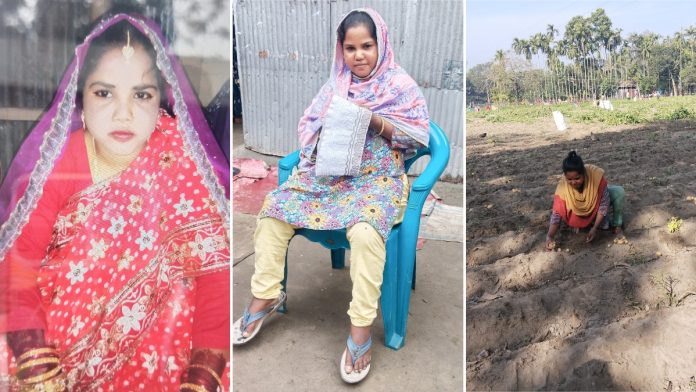
According to the National Mental Health Survey 2019, about 18% of people have a mental illness, of which 1% are affected by its most complex form and overall, 13% of children experience mental health issues. In contrast, accessible mental healthcare services are scarce in Bangladesh, with only two specialised mental hospitals, limited to no mental health services in district hospitals, and insufficient doctors, clinical psychologists, and other resources. Consequently, around 92% of those affected by mental health issues remain without any service or counselling. Among them, persons with disabilities (PWDs) are the most neglected and deprived.
Against this backdrop, the PPEPP-EU project organised mental health camps led by psychiatrists for its extremely poor members and the local community who lack access to mental health services in hard-to-reach areas. Eight (08) camps were held in different project areas until last December, with the participation of 231 patients affected by mental health issues. Patients attending these camps received consultations, treatments, and medicines to aid their rapid recovery and reduce their treatment costs, as they could not afford to buy them.
The project also ensures post-camp follow-up for these patients through PPEPP-EU’s Community Nutrition and Health Promoters (CNHPS) and Assistant Technical Officers (ATOs)-Nutrition at the household level. They emphasise the timely and regular intake of medicines by communicating with the patient’s family members and ensuring a regular supply of required medicines from the project.
A recent study on these patients suggests that 62% of them have started recovering from their previous mental health issues, while 17% of them have recovered very well. As many as 57 patients can care for themselves and participate in household chores or assist their family members. Additionally, 22 of them have been involved in various income-generating activities (IGAs), such as goat rearing, cropping, running small businesses or working as agricultural day labourers.
Sharmin Begum (24), a PPEPP-EU member from Rangpur’s Gangachara upazila, suffered from mental health issues for nearly 6 to 7 years. She was mentally unstable and experienced seizures, headaches, and memory problems. She often became angry and verbally abused her family members. Her parents took her to a local Kabiraj and doctors, but nothing cured her. They also worried about marrying their daughter as she was getting older.
Last year, she consulted a reputed psychiatrist while attending a mental health camp organised by the PPEPP-EU project. Following the doctor’s prescription, she received all her medicines from the project at no expense. Besides taking medicines, project staff also made periodic follow-ups at Sharmin’s house, guided her parents, and ensured a conducive environment for her effective recovery.
Her fantastic recovery has made her almost a normal girl who takes care of herself and helps with household chores. Sharmin’s parents were happy to see her recovery and positive changes, and they got her married to Md Manu Mia earlier this month. Sharmin said, “Now I live a happy life with my husband and family. I can do all the work in the family, and I want to be self-reliant by sewing after receiving training.”
PPEPP-EU is working to break the social, financial and other predisposing factors of mental stigma, including the clinical services. It fosters awareness and positive attitudes towards these individuals through its various social platforms. The project also works to make society free from prevailing superstitions about mental health patients and engage them in suitable IGAs to make them self-dependent.

